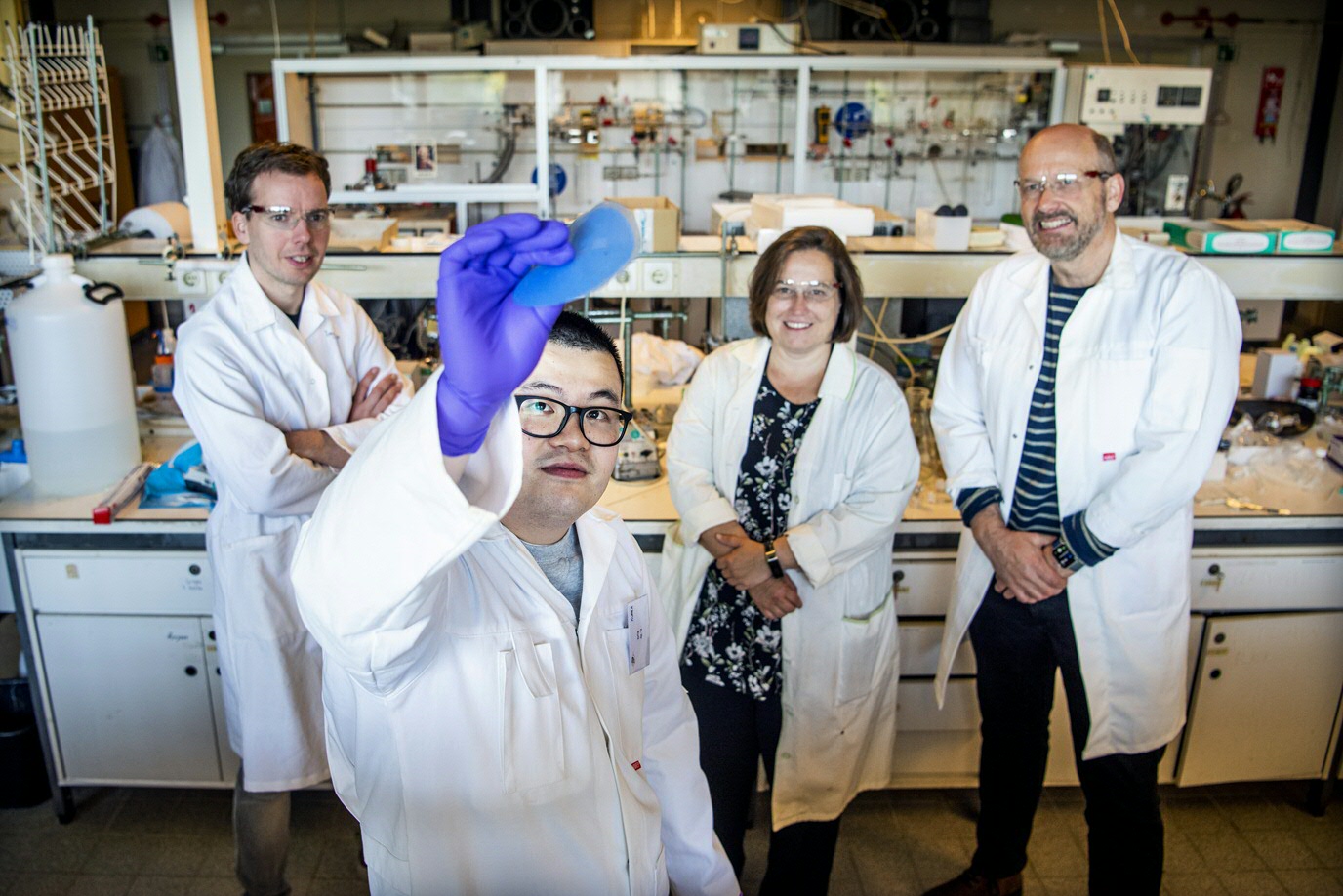Promotie Chongnan Ye eerste uit hybride onderzoeksgroep Katja Loos (Universiteit van het Noorden)
Promovendus Chongnan Ye deed onderzoek naar nieuwe veelzijdige en beter recyclebare polymeren. Ye ontwikkelde een bibliotheek van duurzame dynamische polymeernetwerken, bestemd voor geavanceerde toepassingen. Hij promoveert op 17 mei binnen de RUG-onderzoeksgroep van hoogleraar chemie Katja Loos, die onder meer samenwerkt met hogeschool NHL Stenden in Emmen. Deze in Nederland unieke samenwerking komt voort uit het samenwerkingsverband Universiteit van het Noorden.
Synthetische polymeren zijn een van de belangrijkste uitvindingen van de mensheid. Ze zijn onder te verdelen in twee basiscategorieën: thermoplasten en thermoharders. Thermoplasten zijn lineaire polymeerketens met het vermogen om bij hoge temperaturen opnieuw te worden verwerkt. Thermohardende polymeren daarentegen zijn opgebouwd uit chemisch verknoopte netwerken. Vanwege hun verschillende topologische structuur presteren thermoharders voor wat betreft de vormstabiliteit en kruipweerstand gewoonlijk beter dan thermoplasten, maar zijn minder goed opnieuw te verwerken en te recyclen.
Duurzame dynamische polymeernetwerken
In het afgelopen decennium hebben zogeheten vitrimeren veel aandacht getrokken vanwege hun recyclebaarheid, maar dit zou niet alleen beperkt moeten blijven tot het recyclen van thermoharders in traditionele kunststoftoepassingen, zoals verpakking, gieten en constructie. Daarom heeft Chongnan Ye een bibliotheek van deze duurzame dynamische polymeernetwerken ontwikkeld voor geavanceerde toepassingen.
Beste van beide werelden
Vitrimeren, een groep van dynamische polymeernetwerken, zijn voor het eerst geïntroduceerd door Leibler et al. in 2011, een resultante van de ontwikkeling van covalente combinatorische chemie. Als een klasse van nieuwe covalente associatieve netwerken (CAN's) bieden vitrimeren een oplossing om het beste van beide werelden te combineren. Door een geschikte transveresteringskatalysator toe te voegen aan op polyester gebaseerde epoxyharsnetwerken ontstaat in de permanente netwerken een geleidelijke viscositeitsafname bij verwarmen, vergelijkbaar met glasachtig silica. Daarom is de term "vitrimeer" bedacht.

Universiteit van het Noorden
Met het netwerk Universiteit van het Noorden (UvhN) bundelen we onze topkennis voor de ontwikkeling van het Noorden. Dat doen we door academisch en praktijkgericht onderwijs en onderzoek met elkaar te verbinden op thema’s als circulaire economie en duurzame energie. Door onze kennis te delen en gezamenlijk te innoveren, creëren we kennisclusters met nieuwe en direct toepasbare topkennis die van impact zijn op Noord-Nederland en daarbuiten. Ook zorgen deze kennisclusters voor het behoud en aantrekken van talent in de regio. Zo investeren we met UvhN in een vitale Noordelijke regio.
Meer nieuws
-
17 februari 2026
De lange zoektocht naar nieuwe fysica
-
10 februari 2026
Waarom slechts een klein aantal planeten geschikt is voor leven
